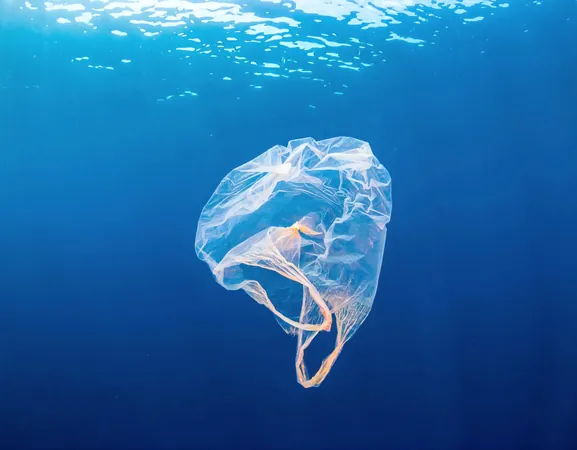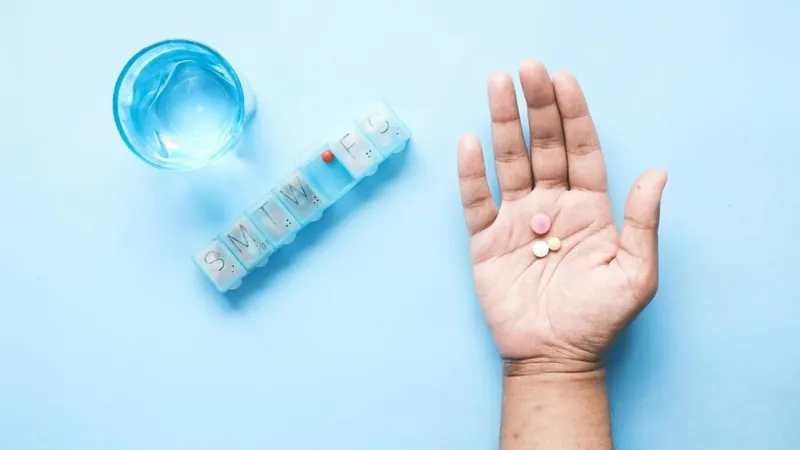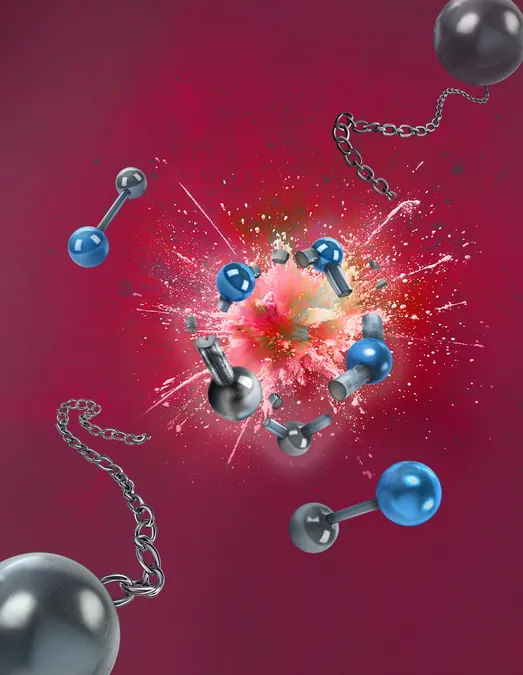
Revolutionizing Plastic: Meet the Groundbreaking Bioplastic That Dissolves in Water!
2024-11-17
Author: Li
What is MECHS?
MECHS, which stands for Mechanical Engineered Living Materials with Compostability, Healability, and Scalability, is the brainchild of Manjula-Basavanna and Joshi. Their recent publication in the journal *Nature Communications* unveils this remarkable creation that integrates engineered living materials capable of producing functional substances.
Nature’s Inspiration
What sets MECHS apart is its remarkable design inspired by nature. Biologically adept, this new bioplastic can regenerate, adapt, and react to various stimuli, including light. Unlike traditional plastics, MECHS is biodegradable, breaking down harmlessly in water or compost environments. "Imagine just flushing it down the toilet without worrying about pollution," Joshi highlights the potential.
The Science Behind MECHS
MECHS is created from genetically engineered E. coli bacteria combined with a fibrous matrix, similar to what you'd find in traditional paper or film. Its unique fibrous structure allows for impressive flexibility, enabling it to mimic plastic wrap while also being customized for various stiffness levels. Additionally, its self-healing properties ensure that even if it gets damaged, it can repair itself.
A Game Changer in Packaging
The potential for MECHS to revolutionize packaging is particularly exciting. This bioplastic could be the future of primary packaging materials, from the protective wrap around your electronics to laundry detergent pods. Imagine a biodegradable wrap gently decomposing in your garden and nourishing plants as it vanishes!
With nearly one-third of the global plastic market dedicated to packaging, Manjula-Basavanna emphasizes that switching to MECHS could mitigate the plastic pollution crisis significantly. Conventional plastics can linger in the environment for centuries, while MECHS would decompose in a fraction of that time.
Overcoming Challenges
Despite its potential, the widespread adoption of MECHS comes with challenges. The stability of the engineered E. coli bacteria is a prime concern, necessitating rigorous safety and stability assessments to protect against unforeseen environmental impacts. Moreover, industries reliant on traditional plastics face economic and logistical hurdles in transitioning to this novel material — adaptation of production techniques could demand substantial financial investment.
Public acceptance is equally crucial. Regulatory frameworks must evolve to embrace such innovations while ensuring safety and effectiveness.
A Vision for the Future
The development of MECHS heralds a new era of sustainable materials that can reshape industries and environmental approaches. As research progresses, future innovations may include more specialized biodegradable materials catering to various sectors, including environmental conservation and the health care industry.
By fostering collaboration between biology, chemistry, and engineering, Manjula-Basavanna and Joshi are paving the way for innovative materials that could transform our relationship with the products we use and the planet we inhabit.
Ultimately, MECHS represents a hopeful glimpse into a sustainable future, showcasing how nature-inspired solutions can lead to revolutionary changes in our approach to material usage.




 Brasil (PT)
Brasil (PT)
 Canada (EN)
Canada (EN)
 Chile (ES)
Chile (ES)
 España (ES)
España (ES)
 France (FR)
France (FR)
 Hong Kong (EN)
Hong Kong (EN)
 Italia (IT)
Italia (IT)
 日本 (JA)
日本 (JA)
 Magyarország (HU)
Magyarország (HU)
 Norge (NO)
Norge (NO)
 Polska (PL)
Polska (PL)
 Schweiz (DE)
Schweiz (DE)
 Singapore (EN)
Singapore (EN)
 Sverige (SV)
Sverige (SV)
 Suomi (FI)
Suomi (FI)
 Türkiye (TR)
Türkiye (TR)